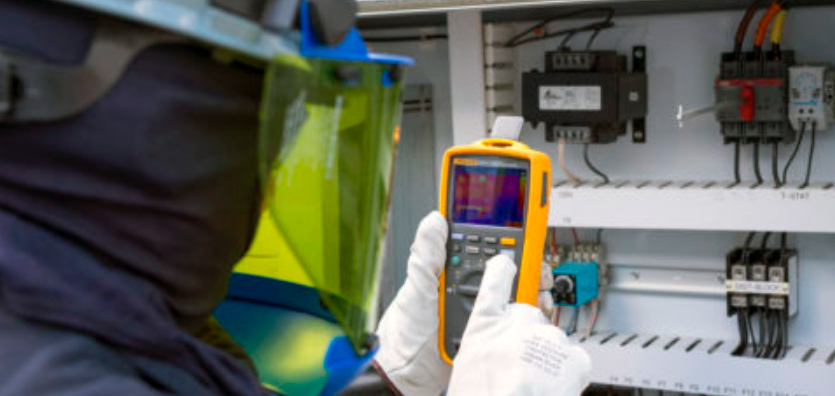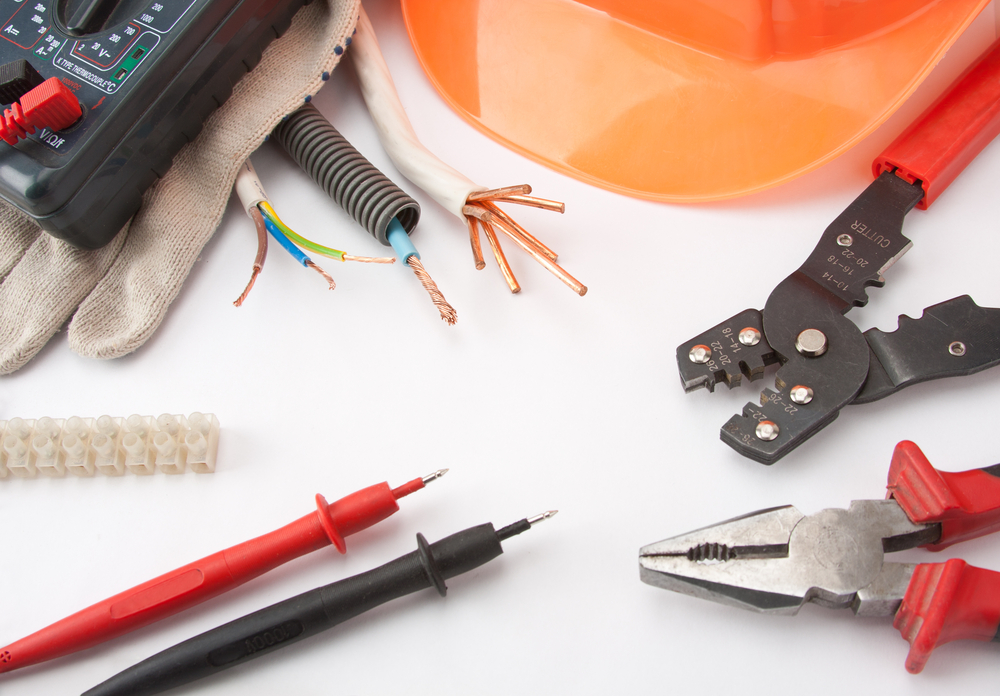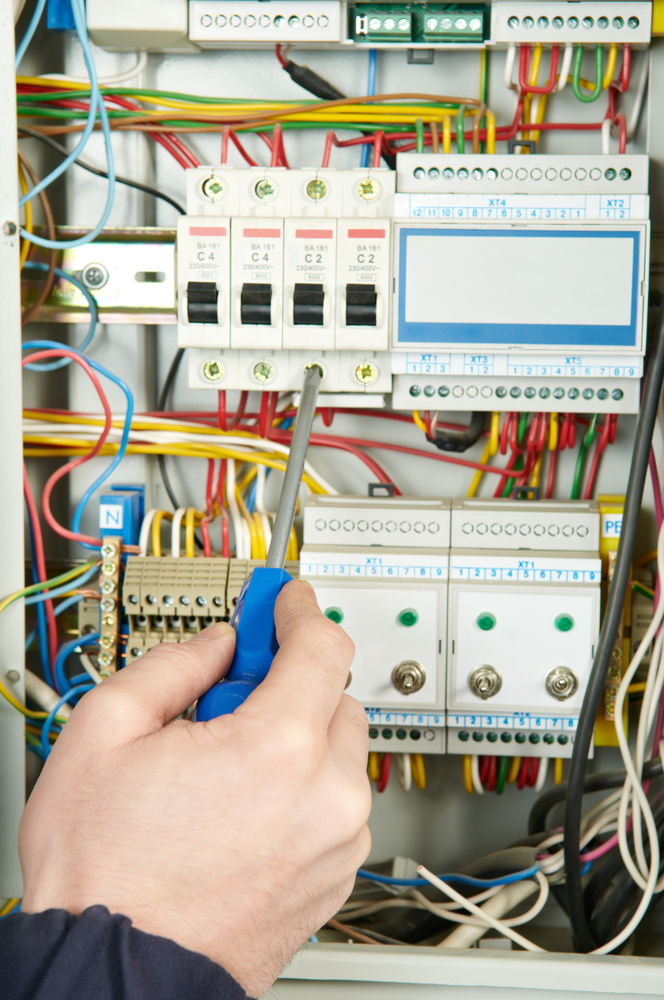We all rely on electricity in our business and daily lives. According to The US Energy Information Administration, commercial and industrial power usage accounts for just over 61% of the nation’s entire power grid. However, it’s not unusual to find yourself unexpectedly without power during natural disasters and severe weather. If you’re at home during a power outage, here are the top tips you need to know to keep your family safe.
Importance of a Proactive Electrical Maintenance Plan for your Business
Proactive electrical maintenance is an essential part of a successful business strategy. It can help mitigate risks, save costs, and increase the efficiency of your operations. That is why its important to consider hiring professional electrician company for electrical maintenance services.
Keep your business running smoothly with a proactive electrical maintenance plan.
Risk Mitigation
A proactive approach helps identify and address potential electrical issues before they become critical problems. This reduces the risk of electrical fires, equipment failures, and unplanned downtime, which can negatively impact your business’s productivity and reputation.
Cost Savings
Regular electrical maintenance can extend the life of your electrical equipment, reducing the need for costly repairs or replacements. It also helps prevent unexpected breakdowns, which can lead to lost productivity and expensive emergency repairs.
Increased Energy Efficiency
A well-maintained electrical system operates more efficiently, reducing energy consumption and lowering your utility bills. An efficient system also puts less strain on your equipment, leading to longer lifespans and improved performance.
Are you tired of dealing with electrical issues and costly repairs?
We can Help. Get started now!
Top 5 Tips for Creating a Proactive Electrical Maintenance Plan
Now that we know why having an electrical maintenance plan is good for businesses, lets go over how to create one. To create an effective maintenance plan for your electrical system, follow these five tips:
Tip 1 - Conduct a Thorough Inspection
Before you can develop a maintenance plan, you need to know the current state of your electrical system. The best way to do this is to call your local electrician company and request an inspection service.
Identifying Potential Issues
Have a certified electrician inspect all electrical equipment, wiring, and components for signs of wear, damage, or corrosion. Make note of any potential issues so they can be addressed during scheduled maintenance. We recently uploaded a blog about 6 telltale signs that you may have outdated or dangerous wiring. If you are interested in learning more about this topic, click right here.
Assessing Electrical Load
One of the benefits of hiring an electric contractor is that they can evaluate the electrical load on your system to ensure it is operating within its capacity. Overloaded systems can lead to equipment failure and increase the risk of electrical fires.

Tip 2 - Schedule Regular Maintenance
After the certified electrician is done assessing your electrical system and wiring. Establish a regular maintenance schedule to keep your electrical system in optimal condition.
Establishing Maintenance Intervals
Determine the appropriate intervals for maintenance tasks based on manufacturer recommendations, industry best practices, and the specific needs of your business.
Importance of Consistency
Adhering to a consistent maintenance schedule helps prevent issues from developing and ensures that your electrical system remains reliable and efficient. This is particularly true for industrial businesses such as factories.
Tip 3 - Implement a Preventive Replacement Strategy
A preventive replacement strategy involves identifying and replacing components that have a high likelihood of failure before they actually fail, ensuring your electrical system continues to function optimally.
Identifying Components at Risk
Evaluate the age, usage, and performance of your electrical equipment and components to determine which ones may be nearing the end of their useful life. Consider factors such as the operating environment and any history of previous failures or issues.
Scheduled Component Replacement
Based on your assessment, schedule the replacement of at-risk components before they cause unplanned downtime or other issues. This is another common electric service you can request to a certified local electrician company. Remember to regularly update your preventive replacement strategy as your system and equipment age will help maintain the reliability and safety of your electrical system.
Reduce the risk of electrical fires, equipment failures, and unplanned downtime with Reyco Electrical Services.
Start your maintenance plan today!
Tip 4 - Train Your Staff
Empowering your staff with the knowledge and skills necessary to maintain your electrical system is essential for the success of your maintenance plan.
Benefits of Trained Personnel
Trained personnel can identify potential issues early, reducing the risk of costly repairs or downtime.
Safety Training
Ensure that all employees understand the potential hazards associated with electrical systems and know how to work safely around them. This includes training on lockout/tagout procedures, personal protective equipment, and emergency response protocols.

Tip 5 - Monitor and Evaluate Your Plan
A proactive electrical maintenance plan is not a one-time effort. Continuously monitor and evaluate your plan to ensure its effectiveness.
Tracking Maintenance Activities
Keep detailed records of all maintenance activities, including inspections, repairs, and component replacements. This will help you identify trends, track equipment performance, and adjust your plan as needed.
Adjusting Your Plan as Needed
Evaluate your plan regularly to ensure it is meeting the needs of your business. Adjust maintenance intervals, tasks, or personnel assignments as necessary to optimize the performance and safety of your electrical system.
A proactive electrical maintenance plan is essential for ensuring the safety, efficiency, and reliability of your business’s electrical system. By following these five tips, you can create a comprehensive plan that mitigates risks, reduces costs, and keeps your business running smoothly.
FAQs about electrical maintenance services
1. What is the difference between proactive and reactive electrical maintenance?
Proactive maintenance involves regular inspections, scheduled maintenance, and preventive measures to keep your electrical system in optimal condition. Reactive maintenance, on the other hand, involves addressing issues after they have occurred, often resulting in costly repairs and unplanned downtime. Another way of calling this is Electrical Emergency Repair Services
2. How often should I schedule electrical maintenance for my business?
The frequency of electrical maintenance depends on the specific needs of your business, the age and condition of your equipment, and industry best practices. Consult with a licensed electrician to determine the appropriate maintenance intervals for your business.
3. What are some common electrical issues that businesses face?
Common electrical issues include overloaded circuits, damaged or frayed wiring, faulty connections, and equipment failures. Regular maintenance can help identify and address these issues before they become critical problems.
4. Can I perform electrical maintenance tasks myself, or do I need to hire a professional?
While some basic maintenance tasks can be performed by trained personnel, it is important to hire a licensed electrician for more complex tasks, such as equipment installations, repairs, and inspections. Working with electricity can be dangerous, and a professional will have the necessary knowledge and tools to ensure the safety and effectiveness of your electrical system.
5. What should I include in my electrical maintenance plan?
Your electrical maintenance plan should include regular inspections, scheduled maintenance tasks, equipment and component replacements, staff training, and a system for monitoring and evaluating the plan’s effectiveness.


